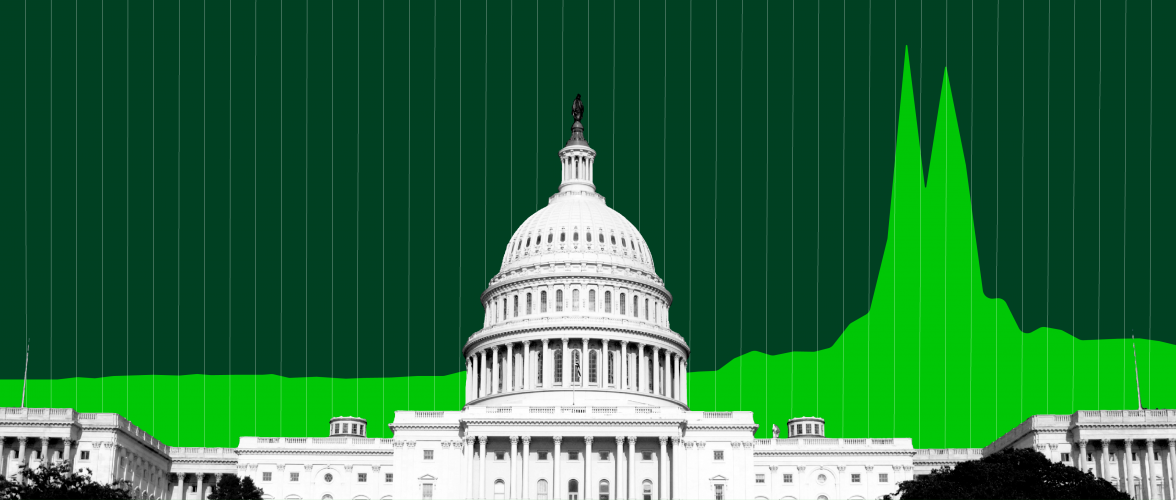App-based financial investing platforms have had breakout success during the pandemic, with millions of new Americans taking an increased interest in investing. The disruption brought by these financial startups was built on the premise of democratizing access to investing: removing barriers so that all investors – not just large institutions and wealthy individuals – have the opportunity to grow their wealth.
But like any disruptive technology, these startups bring potential for a perilous future as well.
Critics of this new wave of investing apps believe the companies operate irresponsibly without common safeguards from the financial services industry and are exposing amateur investors to a level of risk they don’t understand and for which they aren’t prepared.
Further, critics point out that some new investing apps use the same “growth hacking” techniques many social media companies have used to keep their users spending time in their app, making this new generation of investing apps “addictive by design.” These include:
- Subtle design tweaks such as labeling cash “buying power” encourage the full investment of money in user accounts rather than encouraging an asset allocation investing strategy.
- Gamification tactics like “most popular stocks” and “biggest daily movers” cause users to feel they are missing out and create psychological pressure to try to find the next big winner through potentially risky investments.
- “Instant deposits” allow investors to transfer money from their bank account and invest it immediately creating a dopamine rush. But users are required to wait multiple days after selling an investment before they have the option to initiate a transfer of money back to their bank, increasing the likelihood that money will be reinvested with new trades.
For at least a subset of new investors, day trading and short-term investing filled an entertainment gap when the sports world suddenly ended last March. In a stock market “that only goes up,” the risk of gambling-like behavior has been masked by the perceived safety of investing, causing even more new investors to jump in. But when the bubble inevitably pops, many people could lose it all. And the media, government and society will be looking for someone to hold accountable.
While stating “all investments involve risks, including the possible loss of capital” may avoid legal liability, these investing start-ups risk losing their permission to operate and innovate and could cease to exist unless they take real action to protect their users. As we will likely see in the aftermath of the Wall Street Bets saga, disruption in a highly regulated industry like the financial industry has the potential to be met with a level of regulation that start-ups and the tech world are not accustomed to.
Those practices could start with the design of the very applications that are intended to be mobile-first, accessible and intuitive – yet bear a strong resemblance to gambling activities in casinos and online gaming.
Lessons from The Gaming Industry’s Successful Model of Self-Regulation
While casinos and gaming companies are notorious for manufacturing and designing machines, games and experiences that enable casino players to spend more money and gamble longer, they also have robust responsible gaming programs in place to reduce gambling-related harm and help guests make informed decisions to keep gambling fun.
Rather than intentionally exploiting addiction, gaming trade groups and leading gaming companies have partnered with outside experts and academia to develop science-based approaches to encourage responsible gaming. For them, it’s the right thing to do as responsible companies, and this type of successful self-regulation has prevented further government regulation that could restrict their license to operate.
Here are four lessons from the gaming industry that investment startups and the financial services industry can leverage to provide greater protection for their reputations and customers.
(1) Invest in Responsible Gaming Initiatives and Programs
While many casinos and gaming companies are required to have responsible gaming programs in place as a condition of licensing, some have decided it is a critical part of being a responsible company and have gone above and beyond to integrate responsible gaming into everyday business practices.
Gaming companies have found a way to share healthy gaming practices in messaging to customers so they can understand the games better, but also better understand the basic concepts of gambling. This includes:
- Encouraging customers to take frequent breaks while gambling. Set a time limit.
- Control your wagers, don’t let them control you.
- Don’t gamble money that you can’t afford to lose, and don’t borrow money to gamble. Set a budget.
(2) Empower Employees to Protect Your Customers
In addition to providing educational resources for players, many gaming companies have gone a step further and hired dedicated gaming advisors for players who prefer additional guidance through verbal interactions and one-on-one support. The advisors receive extensive training for preventing gaming addiction and have the ability to provide referrals to free professional counseling services.
(3) Regular Reminders in-App, in Social, in Marketing
Responsible gaming companies take every possible opportunity to reinforce responsible gaming messaging, which are ultimately designed to create healthier gaming habits for their customers. Best practices include:
- Advertising materials (print, digital, etc.) are required to include a responsible gaming message, including a toll-free hotline number and website that the customer can access for assistance or resources for counseling.
- The materials are also required not to contain any claims that gambling will guarantee a customer’s social, financial or personal success or create a suggestion that gambling will lead to the probability of gains.
- Disclaimers containing hotline phone numbers are also listed in all social media postings, whether in the cover photo of social platforms or within the copy of the social post or an overlay on published creative assets.
(4) Self-Restriction Program
Through self-restriction and self-exclusion programs, customers can exclude themselves from casinos and online gaming apps, revoking all gaming privileges. Gaming operators in certain states are also required by law to remove customers from receiving direct marketing outreach and promotional materials. For customers who do not fully opt-out of gaming, they have the option to establish self-imposed limits on the amount of money they gamble with as well as time spent doing so. These limits and credit restrictions are in place to deter customers from betting more than they can afford to lose.
By being proactive and looking to the gaming industry’s successful self-regulation as a model, financial trading apps have an opportunity to protect their license to operate and build up the reputation equity that helps them responsibly serve the markets and investors.
Kayla Johnson is a campaign innovation manager at Purple Strategies where she helps client teams to better solve corporate reputation challenges using Purple’s proprietary digital solutions. Kayla spent five years working in the gaming industry for MGM Resorts International leading social media strategies. Prior to joining Purple, Kayla served as a state digital director for the Biden for President campaign.

 Celebrating Growth and Leadership at Purple
Celebrating Growth and Leadership at Purple  Has the narrative lost the story?
Has the narrative lost the story?  Caught in the Middle: What Immigration Policy Means for Busi...
Caught in the Middle: What Immigration Policy Means for Busi...  When Corporate Affairs Thinks Like Campaigns
When Corporate Affairs Thinks Like Campaigns